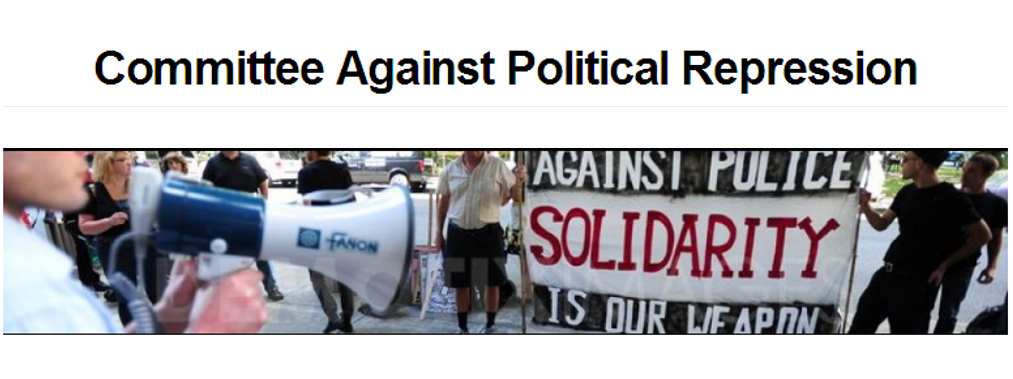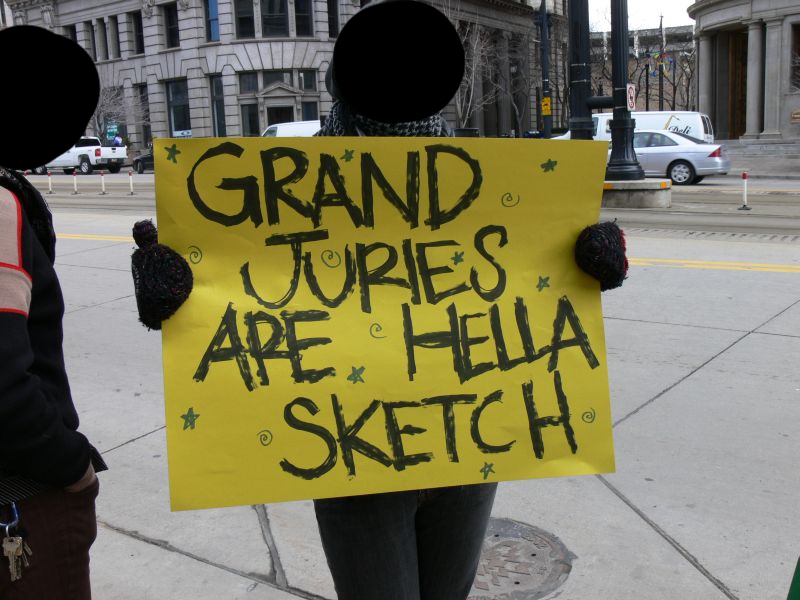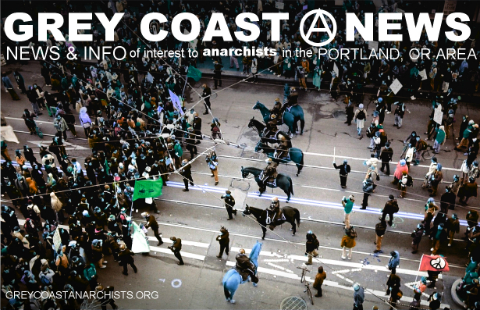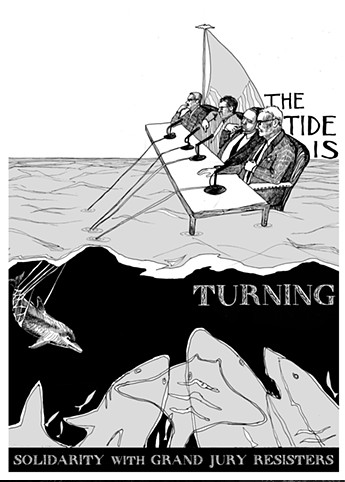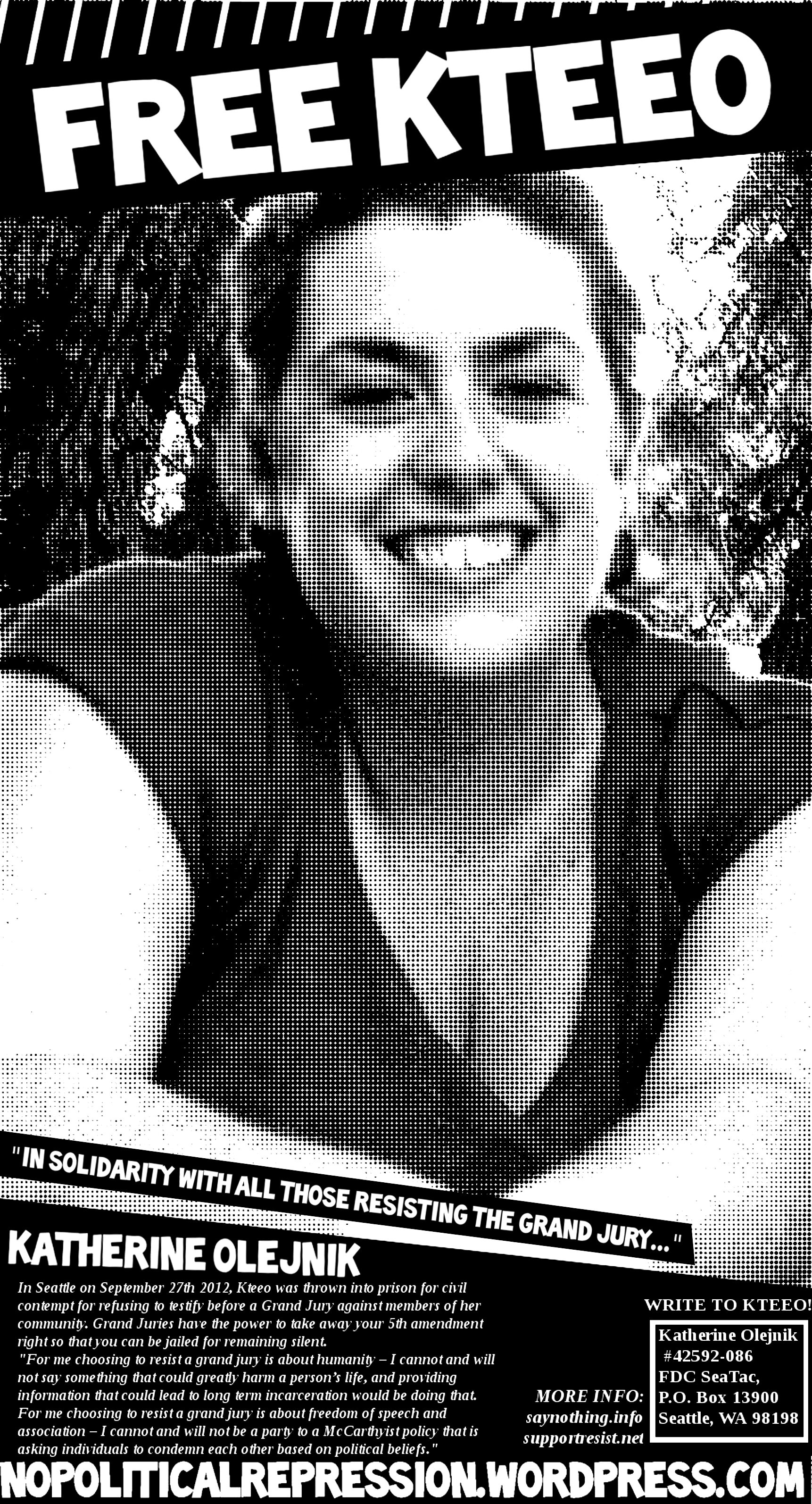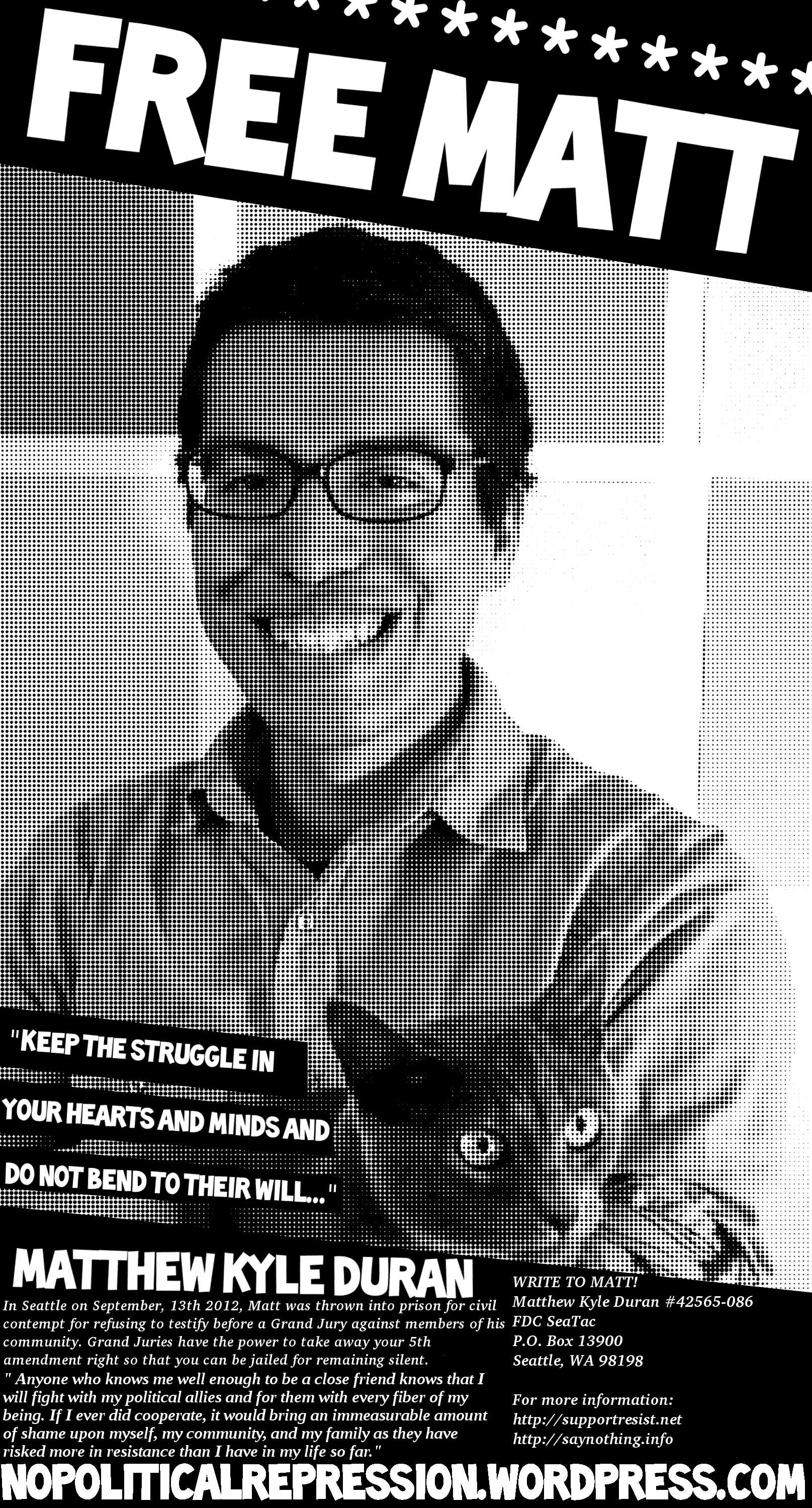From Anonaminita.
A few articles on the police, apparently putting all they’ve got into squashing Occupy Portland, neglecting phone calls from rape victims. The recent crackdowns on national #occupy movements are coordinated by Homeland Security but – what else is new?
– (A)
###########################
###########################
From J for Journalism and Justice. Remi.
PDX Police Chief Mike Reese misleads public
On November 17, during the N17 action, KGW interviewed Portland Police Chief and Mayoral Candidate Mike Reese.
The initial question was pertaining to how Reese felt the day was going. He took that opportunity to mention the actions at the Steel Bridge, the actions at the banks, and then commented about having to make staffing adjustments to cover daily patrols.
A question is then asked about the impact the Occupation protests were having on the police force and how they were distracting officers from being able to respond to other crimes in the area.
“We are reducing our patrol response. Many days, like today, we are taking emergency calls only for service. For example, we had a rape victim stand by for three hours until we could get an officer to take a report and that makes all of us very sad,” Reese replied.
When asked by the interviewer if this was directly related to Occupy Portland, he responded “correct.”
He also mentioned that there were issues with a large group of protesters being in the streets during the N17 action that presented safety risks to themselves, drivers, and other officers. However, protesters stated that the majority of traffic issues on November 17th were due to police actions in the street as they remained on the sidewalks.
The backlash across the internet was almost instantaneous with members of the Portland community calling for the Occupy Movement to disband because they were draining police resources and wasting tax-payer money.
But other media sources were quick to pick up where KGW left off. Specifically, an article by Maxine Bernstein at the Oregonian explained that the call occurred on November 6th and was reported as occurring two days prior. That call was dispatched as a non-emergency.
According to Bernstein’s article, “Laura Wolfe, a spokeswoman for Portland’s Bureau of Emergency Communications, said the delay was not due to any problem with dispatch.” On the day in question, the call came in during a time when there were four officers and one Sergeant from the Central Precinct committed to the Occupy Portland encampment.
Besides the encampment, police were tapped by other incidents that had occurred which included a shooting and a severe traffic accident on I-84.
Since the release of this information, the Portland Police Bureau has been running damage control while other news agencies have begun to run similar stories.
Occupy Portland responded to the Chief’s accusation, “To use an individual who may have been the victim of a horribly violent crime in order to blame protesters for the overreaction of the Portland police is a complete dereliction of office on the part of Mike Reese.”
###########################
###########################
From KGW News. Maxine Bernstein.
Portland Police Chief Mike Reese misled with claim that Occupy kept officers too busy to answer a call
 A call involving a three-hour Portland police response to an alleged rape victim that Portland Police Chief Mike Reese brought up on live TV Thursday when asked how Occupy Portland events were distracting officers from other crimes was not considered a top priority emergency call, and it was made nearly two weeks ago.
A call involving a three-hour Portland police response to an alleged rape victim that Portland Police Chief Mike Reese brought up on live TV Thursday when asked how Occupy Portland events were distracting officers from other crimes was not considered a top priority emergency call, and it was made nearly two weeks ago.
The 9-1-1 call came in during the day Nov. 6, not during any of the large-scale Portland police deployments, but when Central Precinct had four officers and one sergeant assigned full time to the downtown encampments. It also didn’t involve a sexual assault occurring at that moment but two days earlier, police said.
Portland police spokesmen have been working to obtain the circumstances of the call since last night.
Reese responded: “You know that’s a great question. I appreciate you asking because we are reducing our patrol response. Many days, like today, we’re taking emergency calls only for service. For example, we had a rape victim stand by for 3 hours until we could get an officer to take a report, and that makes all of us very sad.”
KGW: For three hours?
Reese: Three hours
KGW: And that’s directly related because there wasn’t enough staff, because they’ve been doing other things with Occupy Portland?’
Reese: Correct
Sgt. Pete Simpson, who is researching the call today, said it appears the delay was “not exclusively because of Occupy Portland.”
Shortly after 2 p.m., Simpson put out a release regarding the chief’s statements on TV. “It’s important to put this information into context,” he wrote, in a prepared statement.
Portland police said a 15-year-old girl called 9-1-1 Nov. 6 at 1:47 p.m., and reported that she had been the victim of a sexual assault two days earlier, and the suspect had been sexually assaulting her for months.
Reese told The Oregonian earlier today that he learned about the delayed response to the call Wednesday after Commissioner Amanda Fritz, who oversees emergency dispatch, brought it to the attention of the mayor’s office.
When asked about the specifics of the call, Reese said he didn’t know.
But he said the dedication of four patrol officers and a sergeant to the downtown encampments alone at that time limited Central Precinct’s ability to respond to calls.
“We didn’t have enough officers to go,” Reese said today, after he had a meeting with the mayor around noon. “We’re a lean force.”
Yet the chief said that the delay also may have been due to poor communication between emergency dispatch and police. “There’s probably a way to communicate better between dispatchers and police,” Reese said.
Laura Wolfe, a spokeswoman for Portland’s Bureau of Emergency Communications, said the delay was not due to any problem with dispatch.
According to BOEC, the call was dispatched to Central Precinct police at 1:56 p.m.. A synopsis of the call indicated it did not involve a sexual assault that was occurring but had occurred days earlier. A patrol sergeant would have seen the call, Wolfe said.
“Once we give the information out, it’s for their patrol supervisor to decide how those calls are prioritized and how those go out,” Wolfe said.
Police said a Central Precinct sergeant “advised that the call would need to hold for awhile as there were only two free cars to respond to emergency calls in Central Precinct.”
According to police, an officer contacted the victim briefly and explained all officers were tied up, but someone would be back to talk to her once more officers were available.
On that day, Central Precinct police were dealing with an assault against a park ranger at Forest Park, a shooting investigation at Northeast 66th Avenue and Sandy Boulevard, and a rally and march for Occupy Portland between 2 and 4:30 p.m., Portland police said. Additionally, police said, Central Precinct officers were helping cover East Precinct calls because of a serious traffic accident that shut down the intersection of Northeast 82nd Avenue and Prescott Street and the callout of the Special Emergency Reaction Team to the shooting.
Around 3:15 p.m., dispatch records show an officer would stop by talk to the caller, and the caller said she’d be waiting inside a fast-food restaurant. She called back at 4:18 p.m., and told dispatch she was still waiting. An officer self-dispatched to the call at 4:58 p.m. , Wolfe said.
The office arrived at 5:16 p.m. and began an investigation, police said.
“It is important to note the victim was in a safe location, away from the suspect,” police said, in a prepared release.
Last Saturday night through Sunday, during the Occupy Portland’s encampment deadline, street celebration and eviction from Chapman and Lownsdale squares, and during Thursday’s Occupy Portland’s N17 march, Portland police dedicated 300 to 400 Portland officers to cover the movement’s protests.
During those major Portland police callouts, the bureau relied on mutual aid agreements with other police agencies, calling in agencies such as Oregon State Police, Clackamas County Sheriff’s Office, and Multnomah County Sheriff’s Office, to help cover Portland patrol calls. Other days, Portland police are directing patrol to focus on priority 1 and priority 2 emergency calls, meaning that a host of other non-emergency calls may stack up for who knows how long, Reese said.
“The Police Bureau is a very lean organization and when several events are happening at the same time, police resources are often tapped to cover the priority calls while lower priority calls that have no immediate danger must hold until officers are clear and able to respond,” the bureau’s release said.
The bureau will continue to work through staffing issues, and how best to use resources “to ensure public safety needs are met within Portland,” according to the bureau’s prepared release.
###########################
###########################
From Washington’s Blog:
Homeland Security Coordinated 18-City Police Crackdown on Occupy Protest
National Coordination Goes Against Protection of Local Accountability
According to Oakland Mayor Jean said that 18 cities coordinated police crack downs on Occupy protests.
Wonkette reports that Homeland Security likely organized the crack downs:
Remember when people were freaking out over the Patriot Act and Homeland Security and all this other conveniently ready-to-go post-9/11 police state stuff, because it would obviously be just a matter of time before the whole apparatus was turned against non-Muslim Americans when they started getting complain-y about the social injustice and economic injustice and income inequality and endless recession and permanent unemployment? That day is now, and has been for some time. But it’s also now confirmed that it’s now, as some Justice Department official screwed up and admitted that the Department of Homeland Security coordinated the riot-cop raids on a dozen major #Occupy Wall Street demonstration camps nationwide yesterday and today. (Oh, and tonight, too: Seattle is being busted up by the riot cops right now, so be careful out there.)
Rick Ellis of the Minneapolis edition of Examiner.com has this, based on a “background conversation” he had with a Justice Department official on Monday night:
Over the past ten days, more than a dozen cities have moved to evict “Occupy” protesters from city parks and other public spaces. As was the case in last night’s move in New York City, each of the police actions shares a number of characteristics. And according to one Justice official, each of those actions was coordinated with help from Homeland Security, the FBI and other federal police agencies.
[…]
According to this official, in several recent conference calls and briefings, local police agencies were advised to seek a legal reason to evict residents of tent cities, focusing on zoning laws and existing curfew rules. Agencies were also advised to demonstrate a massive show of police force, including large numbers in riot gear. In particular, the FBI reportedly advised on press relations, with one presentation suggesting that any moves to evict protesters be coordinated for a time when the press was the least likely to be present.
***
(And for those who are understandably doubtful about Examiner.com as a news source, here’s an AP story from a couple hours ago that verifies everything except the specific mention of DHS coordination.)
Yves Smith notes:
The 18 police action was a national, coordinated effort. This is a more serious development that one might imagine. Reader Richard Kline has pointed out that one of the de facto protections of American freedoms is that policing is local, accountable to elected officials at a level of government where voters matter. National coordination vitiates the notion that policing is responsive to and accountable to the governed.




